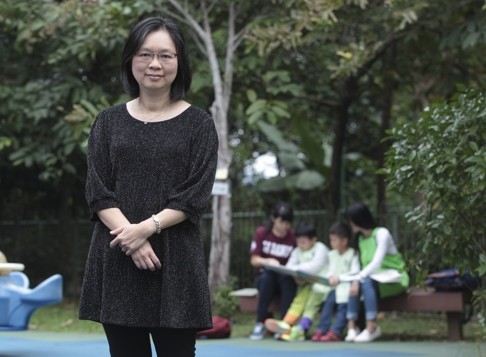
The Hong Kong centres getting children ready for kindergarten
Children as young as two are being prepared socially, mentally and physically for a lifetime of learning. The goal is to make them ‘school ready’ by the time they enter primary classes. Being bilingual is an extra challenge in Hong Kong
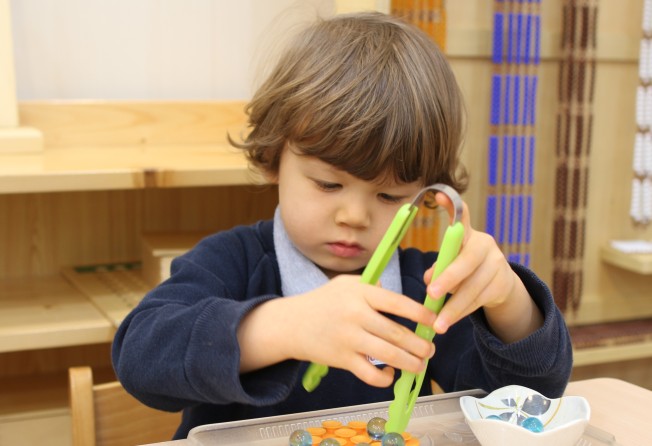
One in four children entering kindergarten in the US is not ready to learn, according to a study jointly published in October by the Pritzker Children’s Initiative and the Bridgespan Group. The finding has timely implications for Hong Kong, especially as the Education Bureau is set to update its “Guide to the Pre-Primary Curriculum” this year.
The US report, which is based on 18 months of research and interviews, stresses the importance of “school readiness” and highlights the difference in achievements between five- and six-year-olds who are prepared and those who are less so.
Being “ready” poses unique challenges for Hong Kong children, as they must be prepared for education in two very different languages by the time they enter primary school, when they will be subject to rigorous testing culminating in an all-important school-leaving examination.
These academic pressures make it challenging for preschools to get Hong Kong children “school ready” while still addressing their pupils’ long-term development.
“We shouldn’t just prepare students in terms of academic content in early childhood, but rather give them foundational skills in problem-solving and self-efficacy,” says educator Dr Ng Mei-lee. “Only this way can children be socially, physically and mentally ready for schooling.”

Ng heads the department of early childhood education at the Hong Kong Institute of Education (HKIEd), and also supervises the HSBC Early Childhood Learning Centre, a kindergarten affiliated with the institute.
Experiential learning has been the focus of the kindergarten, where children are encouraged to “question, explore and experience” at their own pace.
Instead of flash cards, teachers use guiding questions and themed learning experiences to stimulate children and document individual progress. To teach two-year-olds about basic tastes, for example, they are issued with lemon slices to lick. Through the heightened sensory experience of tartness on their tongues, they learn what “sour” means.
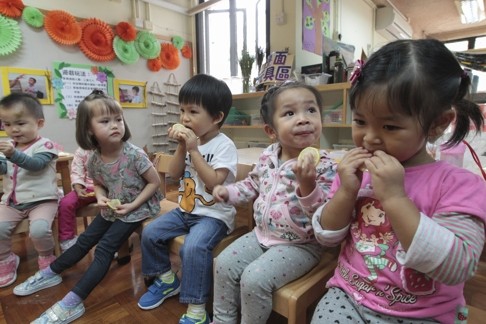
Every year, the HKIEd conducts three faculty-led projects at the centre, which help inform curriculum design and teaching. In one read-aloud project, HKIEd diploma students are paired with kindergarten children for a semester as storytellers. While allowing the diploma students to practise what they have learnt in a real setting, the reading programme plays an important role in the kindergarten’s Chinese and English curriculum.
Ng, an expert in early English-language education, applies her own expertise at the kindergarten. “We expose students to an environment rich with oral language and cultivate speaking and listening as foundational skills for language development,” she explains. “This makes matching sounds to printed words much easier at a later stage.”
Although she recognises the need for bilingual proficiency in Hong Kong’s school system, Ng stresses that English cannot be taught in the abstract when it comes to young children.
At the centre, children absorb language through interactive activities such as clapping along to syllables, and are encouraged to read and write only as a form of self-motivated expression.
Ng concedes that pupils graduating from the centre sometimes encounter difficulty initially when they enter the typically demanding academic settings of local schools.
“Some children find it hard to catch up at first, when they suddenly have to face dictations and such,” she says. “But what {the Early Childhood Learning Centre gives them in ‘school readiness’ is the ability to ask questions and solve problems for themselves. Instead of drilling them on words, we teach them to use a dictionary.”
Ultimately, Ng believes, children’s confidence in their ability to accomplish a task is more important for their education in the long run.
At the Island Children’s Montessori International Nursery and Kindergarten (ICMS) in Tin Hau, school supervisor Kelly Lau has another approach to addressing “school readiness” for its pupils who range from two to six years old. “Our goal is to help children integrate into primary school and maximise individual potential,” says Lau.
But preparing the youngsters to succeed in local schools requires adding to the mixed-age Montessori curriculum, which stresses sensory stimulation and hands-on learning.
“We recognise that the pure Montessori curriculum cannot adequately prepare students for school in Hong Kong, so we try to balance an academic component with the Montessori philosophy,” Lau says.
Just as it stresses the Montessori approach of learning through sensory stimulation (children get to understand qualities such as “long” and “short” by touching physical objects, for instance), the school uses the same concrete materials to convey abstract mathematical concepts.
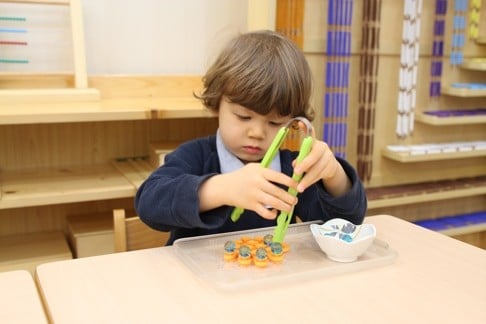
To cultivate language proficiency, two teachers are assigned to each classroom, one speaking English and the other Chinese, so that the children can explore different things in a bilingual environment.
Lau says students pick up reading and writing skills through reading materials and homework that stress quality instead of quantity. The idea is to help them form a reading habit and write for meaning, rather than reproduce flawless sentences.
That’s why there is only one eraser in each classroom, she says proudly. “Students know they can make mistakes and their work is not graded.”
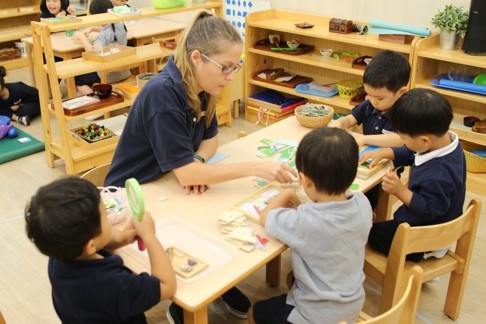
Instilling confidence and self-motivation is vital for their future success, Lau says.
For the Hong Kong Society for the Deaf Bradbury Child Care Centre, “school readiness” for its 30 hearing-impaired pupils means additional attention to their weaker areas in every situation – even during snack time – to prepare them for mainstream primary schooling.
“Right, ‘you don’t want oranges because you are coughing’,” a teacher patiently tells her student, using this real-lifesituation to teach conjunctions, which hearing impaired students often struggle to absorb from everyday language exposure.
“We emphasise language training through what we call ‘total communication’,” says Maggie Chiu, the education service co-ordinator.
“Most of our students wear hearing aids or have cochlear implants, so we encourage them to make the best use of their remaining hearing and other sensory cues to communicate and learn. This is vital preparation for the demanding social and academic environments in primary school.”
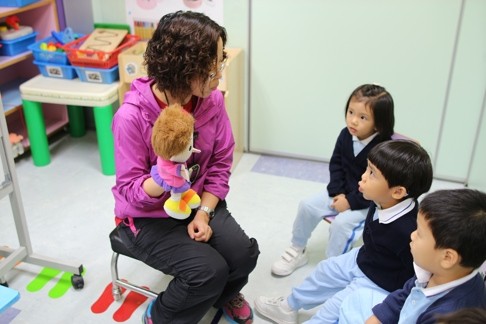
Its child-centred approach combines one-on-one speech therapy and training sessions with themed learning activities in small groups of up to six pupils.
The hearing-impaired children are given individual attention to help them discern sounds and pronounce words and progress is regularly assessed by speech therapists as well as teachers. Learning English can pose particular difficulty as hearing aids are often poor at picking up common high frequency “s” sounds. So besides targeted lessons in hearing and speaking English, the centre also stresses reading through illustrated books that are not only rich in language but also leave ample room for imagination.
As with the other kindergartens, “school readiness” at the Bradbury centre does not end with picking up academic skills. Children are encouraged to speak up and ask questions in and out of the classroom: being proactive has a practical importance for hearing impaired children when they need to ask for help and information throughout their school careers.